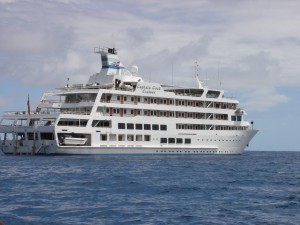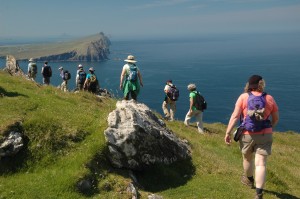Happy International Day of Happiness! I just found out that this is the second annual such day, boosted by the United Nations, which must be timed to coincide with the first day of spring — in the Northern Hemisphere, at least — and its sense of renewal (even though as I look out my window, snow is still covering my upstate New York landscape).
So I thought it appropriate to revisit the issue of whether or not travel makes us happier. Earlier this year I reported on findings that travel, in general, does make us healthier and happier than those who don’t travel, particularly as we age.
“Travelers,” one study found, “report higher satisfaction with regard to their stress levels and their physical health and well being.” It cited travelers’ reports of beneficial effects on “mood and outlook” (86 percent); “stress level” (78 percent); “physical well-being” (77 percent); “mental stimulation” (75 percent); and “health” (70 percent) — factors that should all lead to happiness.
Now a new survey has come along that contends that not all vacations are created equal when it comes to producing the elusive notion of happiness.
In fact, the survey claims, some vacations can leave us more stressed out than before we left.
Writing in the Harvard Business Review, author Shawn Achor notes that in a 2010 study of 1,500 Dutch adult travelers, there was no gain in happiness after a vacation if there was “moderate to high travel-related stress.”
To learn more, Achor then joined forces with “happiness researcher” Michelle Gielan from the Institute of Applied Positive Research to survey their own set of travelers and found that “taking time off from work can make you happier, healthier and more productive when you return, but only specific kinds of travel produce these results. Travel does not lower happiness when you return to work — travel stress does.”
In short, he concludes, “most of the happiness gleaned from a vacation is dependent upon the stress level of the vacation.”
In their study, Achor adds, 94 percent “had as much or more energy after coming back from a good trip,” as opposed to a stressful one.
So how does one achieve a low-stress vacation?
In my next post, I’ll report and comment on Achor’s recommendations for how to achieve just that, and avoid the kind of high-stress vacation that can leave you exhausted upon your return.
Meanwhile, be sure to download my free report, “How to Ride the Coming Wave of Boomers.” It’s all about the best ways to market travel to baby boomers — the biggest-spending group of travelers the world has ever seen. It’s also the easiest way to subscribe to my blog, so you won’t miss a posting. Thanks!














Leave a Reply